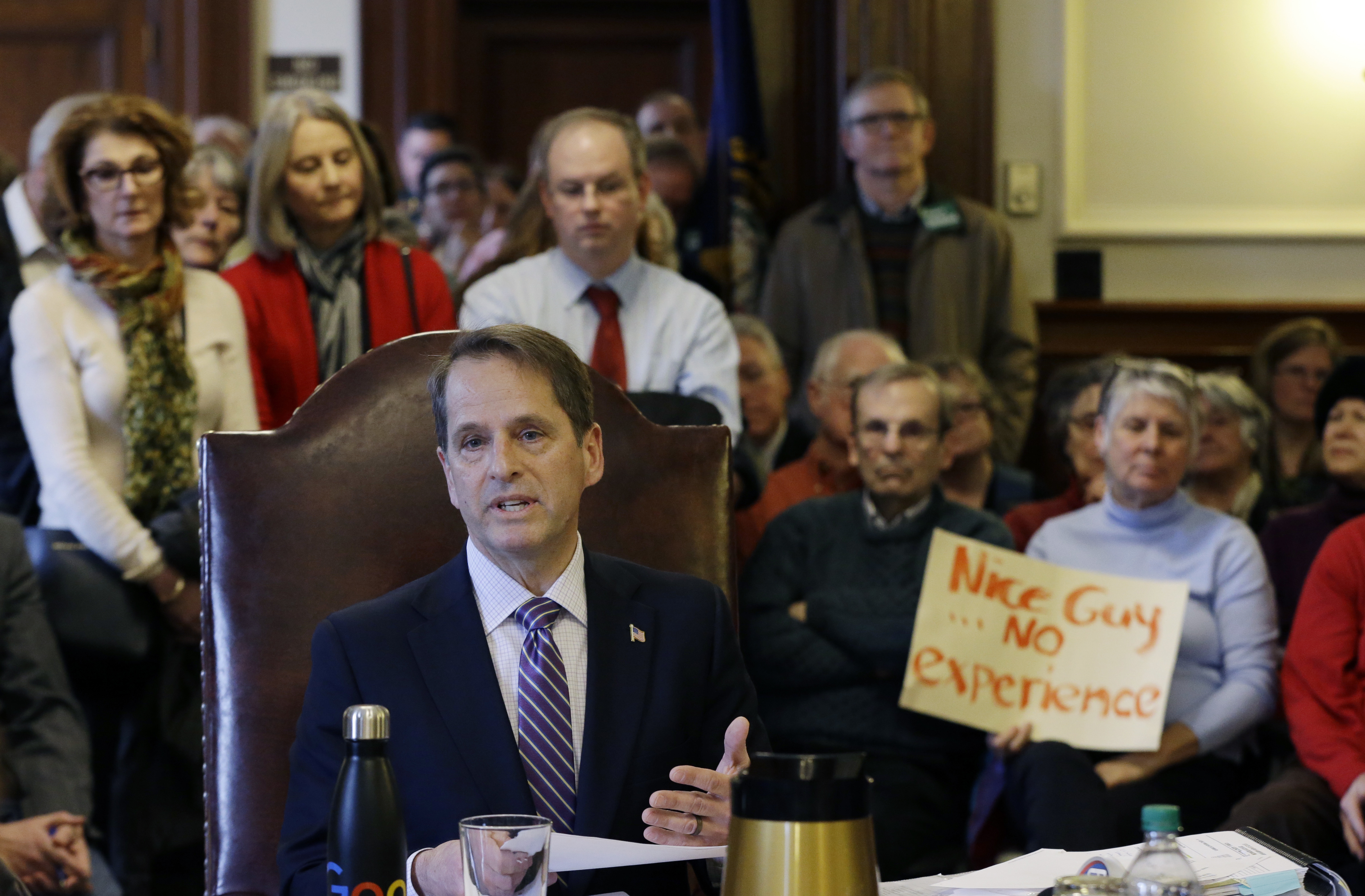‘Choice for Me, But Not for Thee’? NHDems Oppose EFAs, Send Kids to Elite Private Schools

State Sen. Tom Sherman is running for governor as a self-declared champion of public schools and opponent of school choice. He opposes allowing low-income families to use public money to choose a private school education for their children.
Perhaps the same private school Sherman chooses for his son.
While Sherman says he is a proponent of public school education, he sent his son to the Governor’s Academy in Newbury, Mass., a private school with tuition approaching $70,000 per year, GOP activist Patrick Hynes reported in his Union-Leader column on Sunday.
“The Shermans are a family of considerable financial means and are free to send their kids to whatever schools they want. EFA supporters are merely asking for low- and middle-income families who aren’t as wealthy as the Shermans to be able to do the same,” Hynes wrote.
Sherman doesn’t agree. He voted against the Education Freedom Account law passed by the legislature and signed by Gov. Chris Sununu. It allows low and middle-income families to use their child’s share of state funding — not local money– to choose an alternative to their local public school. That could be a private school, a parochial school, homeschooling, or a public school outside their district.
“My first choice would be to stop the program,” Sherman said of the EFA system at a recent debate with Republican Sununu. Sherman has also proposed an annual means test so that if a family’s income one year exceeds the current limit (300 percent of the poverty level), even temporarily, their children would be kicked out of the program.
“Tom Sherman is a school choice hypocrite,” says Corey DeAngelis with the Educational Freedom Institute. “He sent his kid to a private school yet opposes school choice for others. I’m glad his family had that opportunity, but he shouldn’t fight to trap low-income kids in failing government schools.
“Marie Antoinette would be proud of Sen. Sherman, because these school choice hypocrites are essentially saying, ‘Let them eat cake!'” DeAngelis added.
Asked about the allegation of hypocrisy, Sherman declined to respond.
When it comes to opposing EFAs while opting out of public schools, Sherman is hardly alone.
Progressive Rep. Debra Altschiller (D-Stratham) who is currently running for Sherman’s seat in the state Senate, is a staunch opponent of the EFA program, supporting complete repeal.
“Implemented by Republican free staters–and millions of dollars over budget–the school voucher program drains public school funding and threatens an increase in local property taxes,” Altschiller states on her campaign website. But her children have attended elite Phillips Exeter Academy, with $50,000 a year tuition bills, and Berwick Academy, a more affordable $30,000 per year.
Altschiller is also factually incorrect about the EFA program’s impact on local taxes. Because EFA’s only use the state portion of a student’s funding, when students opt out of the local school, the local funding still flows to the classrooms they left behind. As a result, per capita revenue for local schools actually increases when students choose the EFA option.
Sen. Cindy Rosenwald, D-Nashua has also pledged to repeal the EFA program if possible, while sending her son to Groton School, a private boarding school in Massachusetts that currently charges close to $60,000 a year.
Rep. Mel Myler is the ranking Democrat on the House Education Committee and a vocal opponent of parental choice. But when NHJournal contacted him about sending a child to Holderness Academy (boarding tuition: $71,000) Myler declined to comment.
And there’s Rep. Marjorie Porter, D-Hillsborough, who complained this year that advocates wanted to make EFA’s more accessible to New Hampshire families.
“They try to sell them as helping poor kids have choices too, but they have brought several bills forward to raise the income cap to five hundred percent of poverty level, or to eliminate it altogether, making me wonder how a family of four earning $132,000/yr. can be considered poor,” she wrote.
But while speaking out against EFA’s this year, Porter admitted she sent her child to a private school because the public schools weren’t working for her family when he son experienced difficulties.
“I certainly understand the need for families to find an alternative to public schools to meet the needs of their children,” Porter testified. “My own two children attended the same public school where I taught. My daughter was fine with it, but not so my son. He was experiencing difficulties, so we sent him to a local private school until he was middle school age.
“It was good that we had that option,” Porter said.
Not all Democrats believe their position is problematic. “I opposed the EFA vouchers too & I myself actually went to a private school,” Rep. Timothy Horrigan (D-Durham) tweeted, unprompted.
Meanwhile, New Hampshire families are flocking to the program with 3,025 participating this year, up from 1,572 last year. According to NH Bulletin’s Ethan DeWitt, 1,504 out of the 3,025 are eligible for free and reduced-price lunch, meaning 49.7 percent come from households making below 185 percent of the federal poverty level.
“You’d think the party preaching about equity would be in favor of expanding educational opportunities for all students,” DeAngelis said. “The problem is opposition to parental rights in education is about politics and power, not morality or logic. That’s why 99.99 percent of Randi Weingarten’s teachers union’s campaign contributions have gone to Democrats in 2022.
“But now there’s a new special interest group in town – parents – and they aren’t going away any time soon.”




